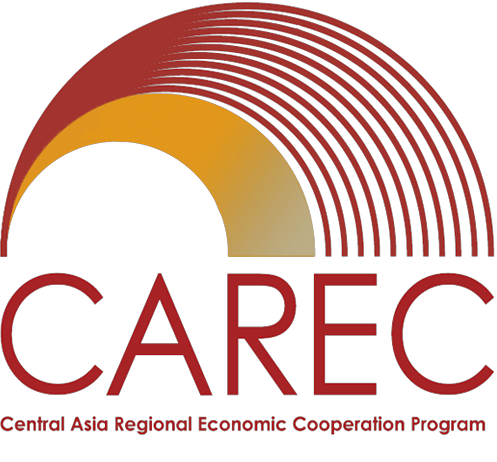Highlights of the CAREC Senior Officials Meeting

Aside from progress in the program’s four priority sectors, the midyear CAREC Senior Officials’ Meeting (SOM) discussed updates on the proposed economic corridor development (ECD) study, the CAREC development effectiveness review (DEfR), the CAREC corridor performance measurement and monitoring (CPMM) report, and the CAREC Institute.
The following are key talking points discussed during the meeting.
- The SOM identified three tracks for the ECD study, namely, development of transport connectivity within the country (Track 1), development of transit role of the corridors across countries (Track 2), and development of economic clusters linked to the corridors (Track 3). CAREC has made considerable progress in Tracks 1 and 2, while Track 3 will be piloted in the Almaty-Bishkek cross border corridor.
- The SOM discussed two major changes resulting from a review of the DEfR methodology: (i) rationalization of the existing indicators, and (ii) introduction of sector outcomes as a new layer between output and regional impacts. The resulting DEfR structure would have five levels: (i) responsible implementing CAREC bodies, (ii) CAREC interventions, (iii) sector outputs, (iv) sector outcomes, and (v) regional impacts.
- The SOM reviewed the 2013 CPMM Report and recognized a marginal improvement in clearing time at border crossing points, while noting that the speed in traveling along CAREC corridors slightly deteriorated. It was proposed that future CPMM reports expand coverage to include railway movements, new sub-corridor performance, and performance measurement and monitoring for trade logistics services. (View 2012 CPMM Report here.)
- The SOM noted progress of the preparatory work for the physical establishment of the CAREC Institute in Urumqi, Xinjiang Uygur Autonomous Region, the People’s Republic of China (PRC), and discussed issues pertaining to (i) the proposed transitional arrangements to register the CI under PRC’s domestic law; and (ii) the proposed legal status of CI as an intergovernmental organization.
The SOM reviewed progress in the four priority sectors and discussed key issues the program needs to address in the future work plans.
- In transport, the SOM endorsed the CAREC Transport Sector Work Plan 2014-2016. The SOM also endorsed the South-South Knowledge Cooperation Initiative.
- In trade policy, the SOM acknowledged that the implementation of the updated Trade Policy Strategic Action Plan (TPSAP) 2013-2017 is especially challenging in two new key areas ─ addressing non-tariff barriers and expanding trade in services ─ and urged CAREC members to closely and proactively collaborate with multilateral development institutions and the donor community.
- In trade facilitation, the SOM supported ongoing prioritized work in customs cooperation such as risk management, coordinated border management at country level, to study issues pertaining to accession to Revised Kyoto Convention, and highlighted the important contribution of customs modernization and cooperation to trade facilitation. The SOM also supported the integrated trade facilitation initiatives such as the ongoing sanitary and phytosanitary (SPS) assessment.
- In energy, the SOM reviewed progress made in the six elements of the Energy Work Plan 2013-2015. It further endorsed the proposal of the Energy Sector Coordinating Committee (ESCC) to commence formulation of the Energy Work Plan 2016-2020.
(For more details, view the complete SOM summary of proceedings here.)
